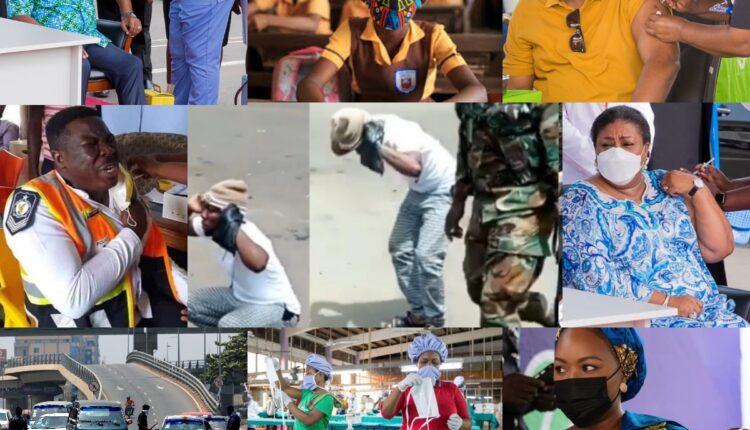One year of COVID-19: This is how Ghana battled the infection
Exactly one year ago, Ghanaians embraced sunrise with business as usual but the whole nation was shaken by sunset.
The first known infections from SARS-CoV-2 were discovered in Wuhan, China.
The original source of viral transmission to humans remains unclear, as does whether the virus became pathogenic before or after the spillover event. Because many of the early victims were workers at the Huanan Seafood Market, it has been suggested that the virus might have originated from the market.
However, other research indicates that visitors may have introduced the virus to the market, which then facilitated rapid expansion of the infections.
Ghana’s Ministry of Health confirmed the first two cases of the coronavirus (COVID-19) on Thursday, March 13. According to authorities, the individuals had returned to Ghana from Norway and Turkey.
In recent years, China was the origin of the Severe Acute Respiratory Syndrome (SARS) pandemic, the Middle East respiratory syndrome (MERS) emerged in Saudi Arabia, and even closer to home was the Ebola outbreak in West Africa.
History has shown Ghana’s escape from pandemics
READ ALSO: EXCLUSIVE: Ghana’s COVID 19 Death More Than What GHS Reports
Yet, none of these was an inch close to Ghana, so why should the nation be bothered about another ‘Chinese infection’ discovered just in the new year of 2020.
Superpowers US, UK, and others considered the new threat a China problem.
The mysterious infection was found to be from the family of coronaviruses by scientists with no cure.
READ ALSO: Special Report: Photos Show How Coronavirus Has Killed Osu Nightlife – Except Sex Work
Lo and behold, amidst cautions by experts, the novel infection broke Ghana’s ‘divine’ pandemic resistance, after it had brought European countries to their knees.
Two people who entered Ghana from Norway and Turkey imported the pathogens on March 12.
Ghana recorded its case just a day after the World Health Organization declared COVID-19 a pandemic.
READ ALSO: COVID-19: 779 Health Workers Infected, Nine Dead
At the time, 114 countries were affected, with 121,500 confirmed cases and more than 4,000 people had died.
Within a period of 12 months, the contagion has found its way to 219 countries and territories, 119,100,965 cases have been recorded and 2,640,992 patients have succumbed to the virus.
Today marks exactly one year since then, the end to the contagion is unknown but the devastating impact has been felt by even a toddler in kindergarten.
READ ALSO: SPECIAL REPORT: Sale Of ‘Coronavirus’ Mask In Accra Goes Up By 1000%
The icy hands of death can point to 656 claimed lives, among the perished a nine-week-old baby boy.
The fallen ‘soldiers’ include lifesavers who couldn’t save their own lives such as Professor Jacob Plange-Rhule.
READ ALSO: Those Ghana Lost To Covid-19 …Gone But Not Forgotten
The Ghana Health Service reports 86,737 confirmed cases, even though the average infections daily have dropped in the last few weeks.
The losses are countless, among other things an Oxfam report suggests Africa’s fight against poverty in some areas have been rolled back by 30 years.
In all these, the manufacture and deployment of vaccines has brought hope as the fight continues.
On this day, theghanareport.com brings you the timelines that have defined Ghana’s resilience in the face of unprecedented public health havoc.
================================================================
2020
- March 12 – Minister of Health, Kwaku Agyemang-Manu announced that Ghana had recorded its first two cases. One case was a senior officer at the Norwegian Embassy in Ghana who had returned from Norway. The other was a staff member at the United Nations (UN) offices in Ghana who had returned from Turkey.
- March 13 – International schools including GIS and Lincoln shutdown. The University of Ghana cancelled campus events and banned visit from outsiders. The government puts in measures to detect the virus at Ghana-Togo border.
- March 15 – President Nana Akufo-Addo holds first COVID-19 update banning all public gatherings including conferences, workshops, funerals, festivals, political rallies, church activities to curtail the spread of the COVID-19. Schools were also shut leaving only candidates preparing for BECE and WASSCE examination. University of Ghana student tested positive after returning from a trip to the US. Online portal launched for COVID-19 updates in the country.
- March 17 – Finance Minister told Parliament that $100 million announced by President Akufo-Addo to fight coronavirus was ready. US Embassy in Accra suspends visa appointments until further notice.
- March 18 – Ghana Immigration Service rejects 31 travellers from coronavirus-hit countries. Pastor arrested in Kumasi for holding church service defying the ban on public gathering.
- March 19 – President Akufo-Addo meets with clergy to prayer against COVID-19.
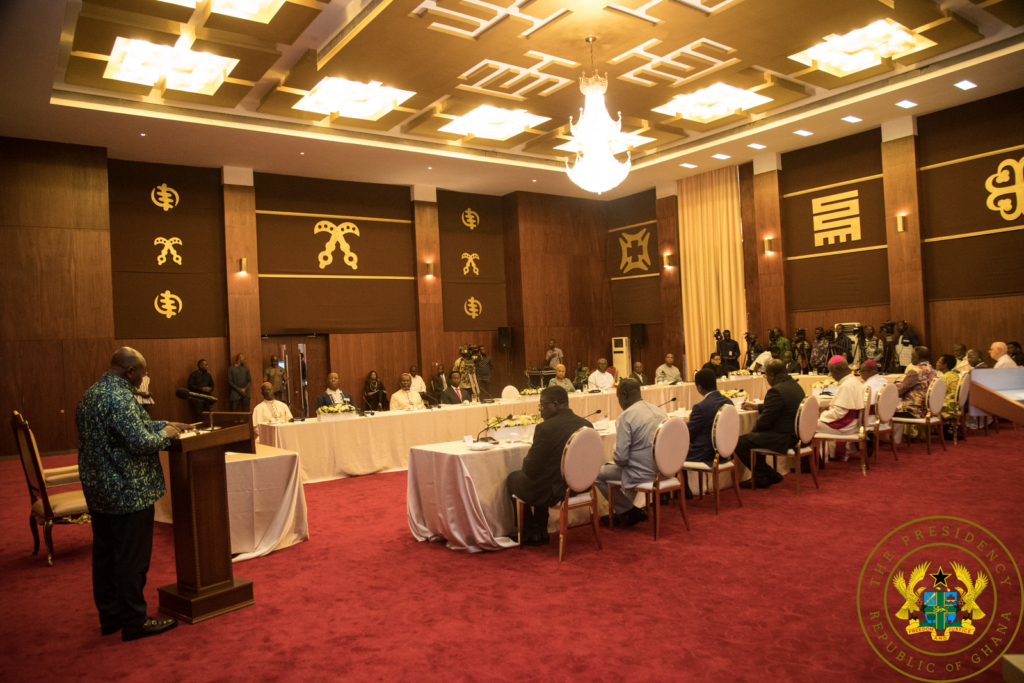
- March 20 – Vice-President Dr Mahamudu Bawumia meets with Imams to hold Muslim prayers for the country. The West African Senior School Certificate Examination (WASSCE) scheduled for May/June was suspended. GCB Bank Limited donates ¢100,000 to government. Alcohol shortage hits some parts of the country as prices of sanitizer skyrockets.
- March 20 – Parliament passed the Imposition of Restrictions Bill on despite opposition from the Minority.
- March 21 – Ghana reports first death case from Kumasi. Ghana’s caseload was 21 at the time.
- March 22 – Ghana shuts all its borders.
- March 23 – The Ghana Tourism Authority orders the closure of all beaches.
- March 24 – Ghana records second death.
- March 25 – National Day Of Fasting And Prayer held across the country. Ghana’s consignment of personal protective equipment (PPE) donated by Chinese billionaire Jack Ma arrives in the country. On the same day theghanareport.com reported Ghana’s first COVID-19 recovery.
- March 26 – Case count was 132 prompting the Ghana Health Service to recall all staff on study leave into active service. Ghana reports first recovery on the GHS website.
- March 28 – Akufo-Addo donates his three months’ salary to COVID-19 fight also announces GH¢3 billion facility, to support industry, especially in the pharmaceutical, hospitality, service and manufacturing sectors.
- March 30 – At 137 cases, a partial lockdown was implemented in Accra, Kumasi, Kasoa and Tema. Mandatory wearing of nose masks kicked in. Theghanareport.com reported how the lockdown killed nightlife in Accra especially in Osu.
- April 4 – World Bank provided $100 million to Ghana for COVID-19 fight.
- April 6 –The government provided a hot meal for over 400,000 people in locked-down areas. The government provides free transport for health workers. MP for Ledzokuku, Dr. Bernard Okoe-Boye, named as Deputy Health Minister-designate.
- April 5 – Nana Akufo-Addo announces free water for the public and three-month tax holiday for health workers and 50% increase in basic salary. Earlier in the day a soldier on lockdown duties shoots and kills a civilian at Ashaiman.
- April 8 – Finance Minister, Ken Ofori-Atta, gets parliamentary approval for ¢1.2b to fund Coronavirus Alleviation Programme.
- April 9 –The government announces free electricity for lifeline consumers and 50% slash for other users.
- April 10 – The Rector of the Ghana College of Physicians and Surgeons, Professor Jacob Plange-Rhule, dies from COVID-19 at University of Ghana Medical Centre in Accra. Ghana Covid-19 Private Sector Fund sponsors training programme for 55 health professionals in the treatment and prevention of Covid-19.
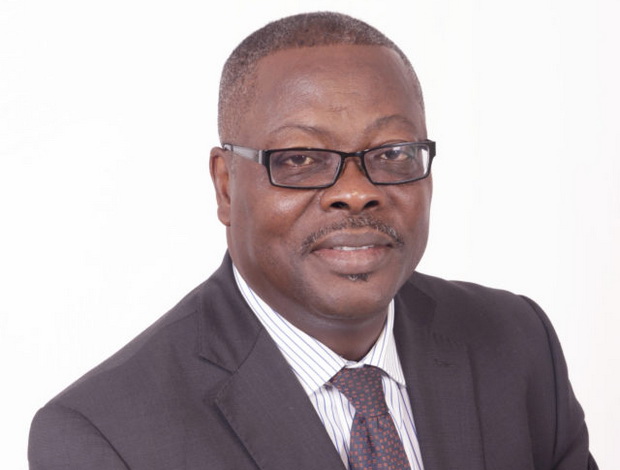
- April 19 – The partial lockdown that had been imposed three weeks earlier was lifted but the other preventive protocols were still in effect. Several social events including weddings were adversely affected.
- May 16 – Ghana recorded the biggest jump in recoveries/discharge as 786 more patients were declared free to go home, the Ghana Health Service update said.
- May 19 – Biggest announced positive infection for a day recorded was 695 persons recorded at a fish-processing factory in Tema after a worker contracted the virus. These figures arrived after the entire 1,300 staff of the company were tested.
- May 21 – Tema Regional Police confirms 10 inmates testing positive at the Tema Police Station. It was also reported on the same day that 43 health workers tested positive in the Western Region. Quarantine measures commence at Kotoka airport for arrivals.
- June 9 – The Minister of Health, Kweku Agyemang Manu, was admitted at the UGMC after contracting the virus. He was the first minister to get the infection. On the same day, 16 persons out of 48 people who died from coronavirus were buried in Accra under the supervision of the Accra Metropolitan Assembly.
- June 12 – The Chief Executive of the Sekondi Takoradi Metropolitan Assembly, Anthony Kobina Kurentsir Sam, died from COVID-19 at the UGMC in Accra.
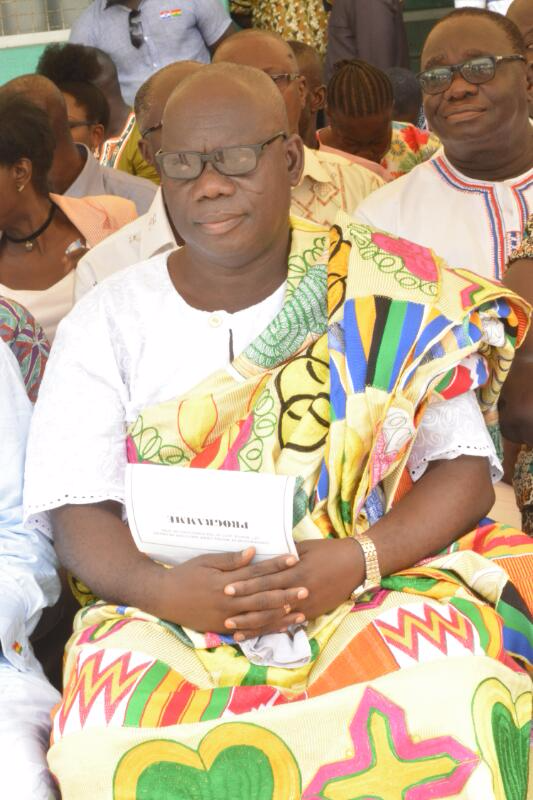
- June 15 – Final year students in tertiary institutions resume to complete academic work. The Ghana Report later reported how universities were managing students who had returned back to campus.
- June 16 – The Ghana Report investigations revealed underreporting of the death toll by the Ghana Health Service.
- June 17 – COVID-19 kills three-month-old baby in the Northern region. GHS reacts to massaging of figures on COVID-19 website.
- June 18 – GHS revised discharge policy patients to release patients who did not show symptoms of the disease and others whose symptoms die down during treatment. Reports of five employees of Multimedia Group Limited.
- June 22 – SHSs reopened to final-year students for them to undergo six weeks of academic work and write their final WASSCE exams.
- June 29 – final year students in JHS returned to school to prepare for their BECE exams.
- June 25 – National COVID-19 Trust Fund, supervised by former Chief Justice Sophia Akuffo, provides over GHC 21million for institutions.
- June 27 – UNDP supported Ghana’s premier health facility, Korle-Bu Hospital, to locally produce hand sanitizers to reduce COVID-19 infections in Ghana.
- June 28 – President Akufo-Addo extended incentive package for health workers for another three months.
- July 4 – COVID-19 pandemic ‘inspired’ locally produced wax cloth hit the markets in Ghana with names such as ‘Fellow Ghanaians’, ‘Lockdown’, ‘Stay at home’, and ‘No flights’.
- July 5 – GMA reveals that over 150 health personnel has contracted COVID-19 since the outbreak in Ghana.
- July 6 – BOST temporarily shuts down after 46 persons tested positive for the virus.
- July 8 – Chief Justice goes into 14-day self-isolation on the advice of his doctors.
- July 14 – At least 152 final year students in the Greater Accra and Volta regions have tested positive for coronavirus. There were also reported cases in the Western Region.
- July 24 – Dr Bawumia commissions the Ghana Infectious Disease Centre, a 100-bed facility built to help the National COVID-19 Treatment Center.
- July 28 – Transport fares were reduced by 10 per cent after operators were allowed to take full capacity after cutting the numbers to adhere to social distancing protocols.
- August 24 – Tertiary institutions in Ghana re-open for academic work.
- August 31 – Announcement for travellers who arrive in Ghana by air were to pay US$150 for COVID-19 test.
- September 1– International flights resume operations in Ghana.
- September 2 – Gov’t Re-Launches Enhanced COVID-19 Tracker
- September 7 – Ghana records six new COVID-19 cases at the KIA after the airport was reopened.
- October 18 – Ghanaian striker, Jordan Ayew tests positive for COVID-19
- October 19 – President Akufo-Addo claimed the country had no patient in the COVID-19 isolation centres in Ghana.
- October 22 – Minority in parliament raised concern with the contract awarded on the testing of COVID-19 at the Kotoka Internationa Airport.
- October 23– Deputy Health Minister Okoe Boye backs $150 charged at KIA for the COVID-19 test.
- November 2 – A research work by NMIMR and another institution claimed over a million people in Accra and Kasoa were exposed to the virus.
- November 3– the GHS claimed there was no indication of a second COVID-19 outbreak in the country.
- November 16 – The Secretary-General for AfDB said the $150 COVID-19 testing fee charged at KIA was ‘Very Exorbitant’
- November 30 – There was a fire outbreak in the Intensive Care Unit of the Korle-Bu Teaching Hospital. This necessitated the transfer of three COVID-19 patients there to the University of Ghana Medical Centre.
- December 7 – The EC divided majority of the polling stations to curb over-crowding and prevent the spread of the virus on election day.
2021
- January 9 – tertiary institutions reopen
- January 13 – FDA denied it has approved a COVID-19 vaccine in Ghana.
- January 15 – kindergartens, primary and junior high schools reopen
- January 18 – Senior high schools reopen. The GHS revealed the names of 15 laboratories certified to test for the virus.
- January 28 – Ministry of Health ordered public COVID-19 testing labs not to charge Ghanaians for COVID-19 testing.
- February 1 – Two people arrested for manufacturing fake coronavirus concoction.
- February 2 – the GHS claimed about 20 COVID-19 cases were recorded in some schools. Ridge Hospital’s COVID-19 ICU was claimed to have run out of oxygen.
- February 6 – A research facility at the University of Ghana claimed the new UK COVID-19 variant was spreading in the country
- February 9 – COVID-19 Forces Parliament To Shut Down
- February 19 – some government officials volunteered to be vaccinated publicly to educate the masses.
- February 20– Russia’s Sputnik V was approved by Ghana to fight the virus after an earlier approval of AstraZaneca.
- February 24 – Ghana becomes recipient of historic first shipment of COVAX
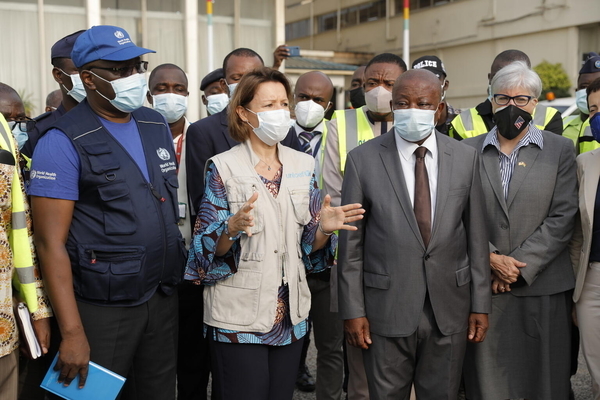
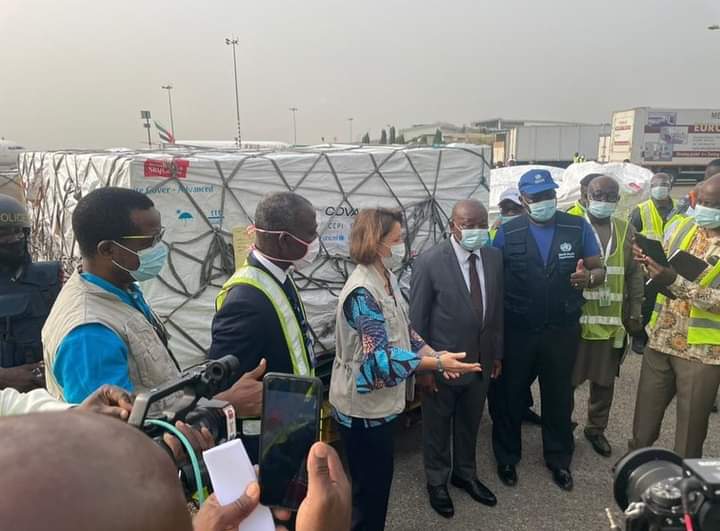
- February 27 – Government announces COVID-19 vaccine would be free in all hospitals.
- March 1 – Akufo-Addo And Wife Receive COVID-19 Jab To Prove Safety. Vice President Bawumia and his wife Samira Bawumia receive jab.
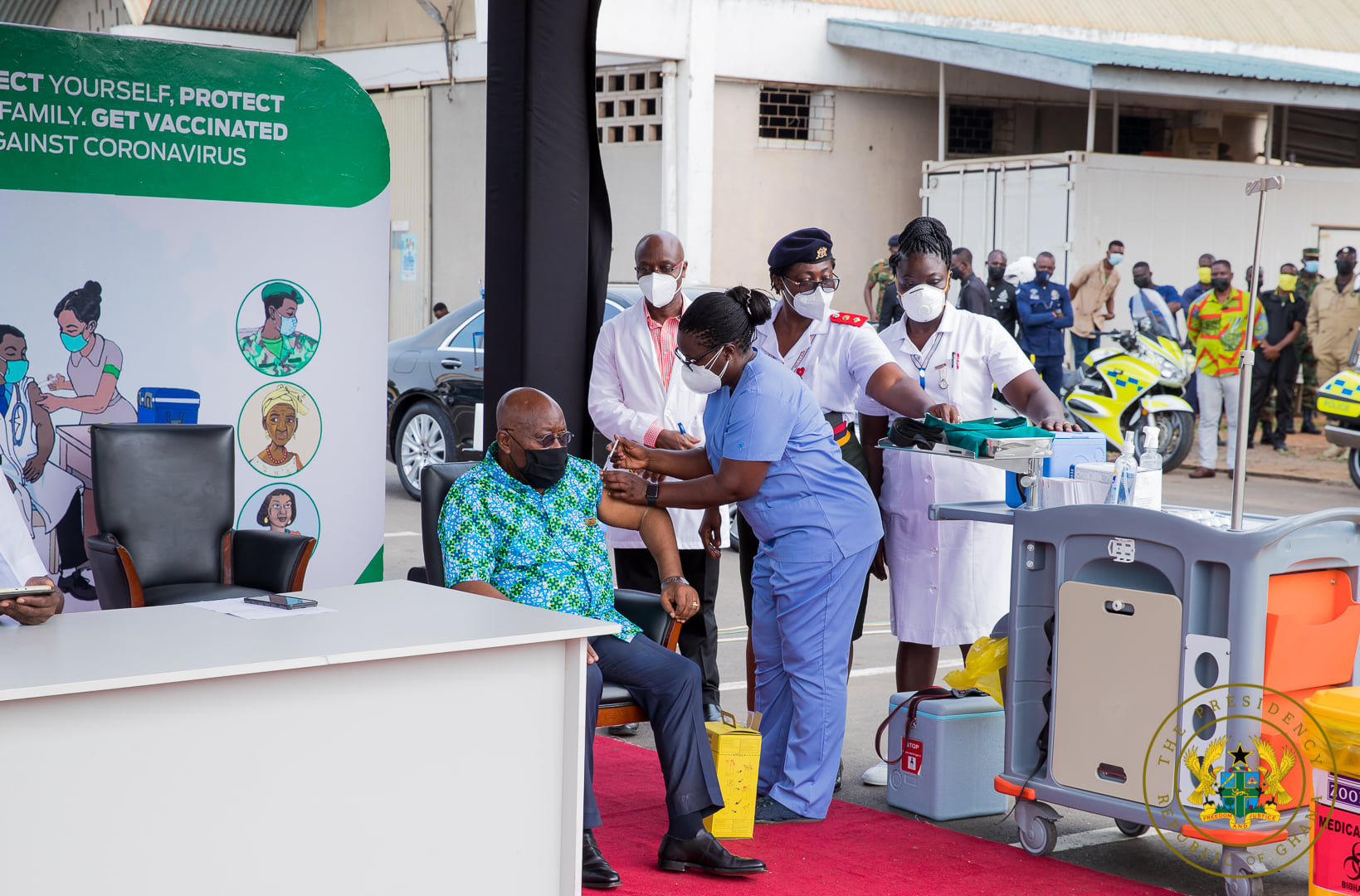
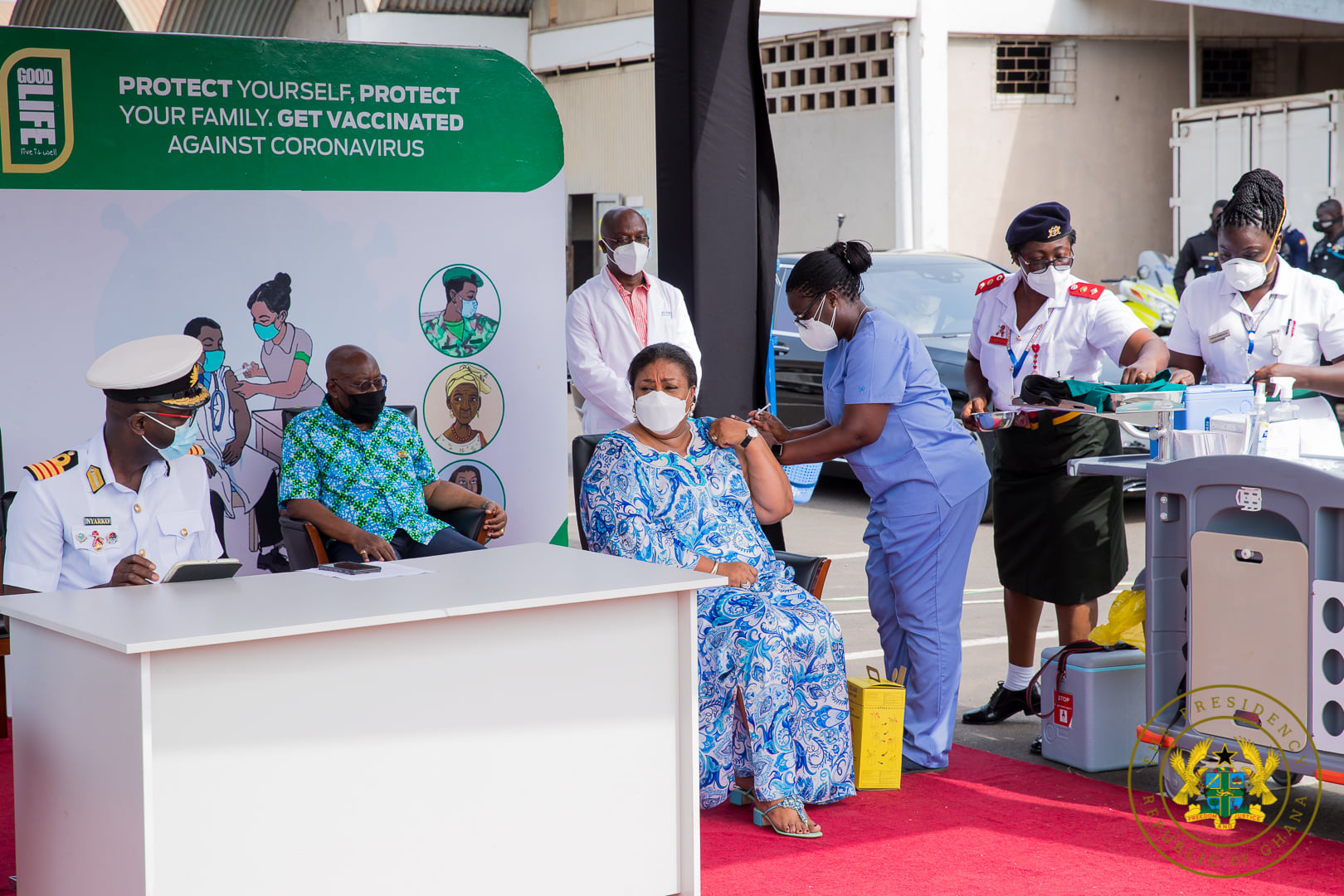
- March 2 – Otumfuo Osei Tutu II and Manhyia Palace, Ga Mantse Tackie Teiko Tsuru II, former President John Mahama, former President John Agyekum Kufuor, vaccinated Against COVID-19. Mass vaccinations begin in Greater Accra and Ashanti Region. More Than 3,000 People Vaccinated On First Day
- March 9 – About 300,000 people received the vaccination.
- March 11 – Dr. Mahamudu Bawumia claimed the pandemic is a wake up call for countries in Africa to co-operate in sustaining the continent.
- March 12 – Ghana marks one year since the country recorded the virus.
RELATED COVID-19 NEWS:
- SPECIAL REPORT: ‘To Bury Or Not To Bury’ – The Bereaved Families In Coronavirus Times
- SPECIAL REPORT: Ghana Averagely Records Five Coronavirus Cases Every Hour
- Coronavirus: 4 Doctors Dead In Under 4 Months, 150 Medical Doctors Infected – GMA
- Voters’ Registration Exercise Could Lead To Mass Deaths – Doctors To EC
- ‘Nobody Buys From Our Shop Anymore’ – Relative Of Coronavirus Patient Reveals Stigma
- Over 100,000 Jobs Lost Due To COVID-19 – BoG
- COVID-19 Has Rendered 500,000 People Jobless In Ghana – TUC
- Those Ghana Lost To Covid-19 …Gone But Not Forgotten
- COVID-19: 779 Health Workers Infected, Nine Dead



